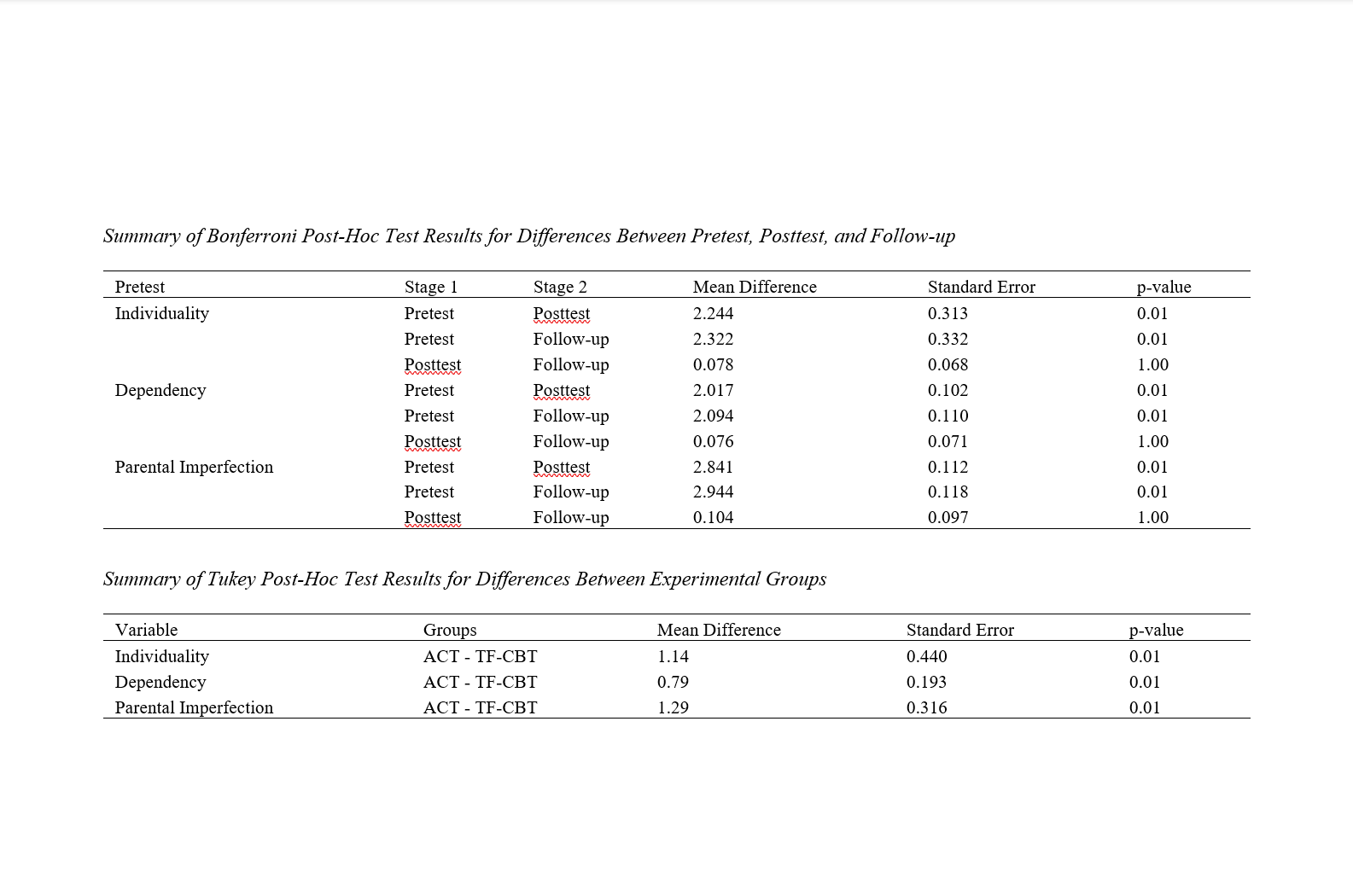Comparison of the Effectiveness of Trauma-Focused Cognitive Behavioral Therapy and Acceptance and Commitment Therapy on Emotional Independence in Adolescents with a History of Domestic Violence
Keywords:
Emotional independence, trauma-focused cognitive behavioral therapy, acceptance and commitment therapy, Domestic ViolenceAbstract
Objective: The purpose of the present study was to compare the effectiveness of trauma-focused cognitive behavioral therapy (TF-CBT) and acceptance and commitment therapy (ACT) on emotional independence in adolescents with a history of domestic violence.
Methods and Materials: The research method was quasi-experimental, with a pretest-posttest design and a non-equivalent control group. The statistical population of this study consisted of 69 female adolescents aged 14 to 18 years who had experienced domestic violence and had case files at the Social Emergency Service in Babol, during the second half of 2023. A total of 45 participants were selected through convenient sampling based on inclusion criteria, and were randomly assigned to two experimental groups of 15 and one control group of 15. The Emotional Independence Questionnaire by Steinberg and Silverberg (1986) was used for data collection. The summary of TF-CBT sessions, based on Kohen (2001), consisted of 10 sessions, each lasting 90 minutes, and the summary of ACT sessions, based on Hayes et al. (2004), consisted of 8 sessions, each lasting 90 minutes, delivered to the experimental groups. No intervention was applied to the control group. Data analysis was performed using repeated measures analysis of variance with SPSS 18 software.
Findings: The results indicated that both TF-CBT and ACT had an effect on emotional independence in adolescents with a history of domestic violence. TF-CBT was found to be more effective than ACT in promoting emotional independence.
Conclusion: The findings of this study may have practical implications for therapists and counselors.
Downloads

Downloads
Additional Files
Published
Submitted
Revised
Accepted
Issue
Section
License
Copyright (c) 2025 Samaneh Gholami (Author); Mohammad Kazem Fakhri (Corresponding Author); Gholamreza Khalili (Author)

This work is licensed under a Creative Commons Attribution-NonCommercial 4.0 International License.








